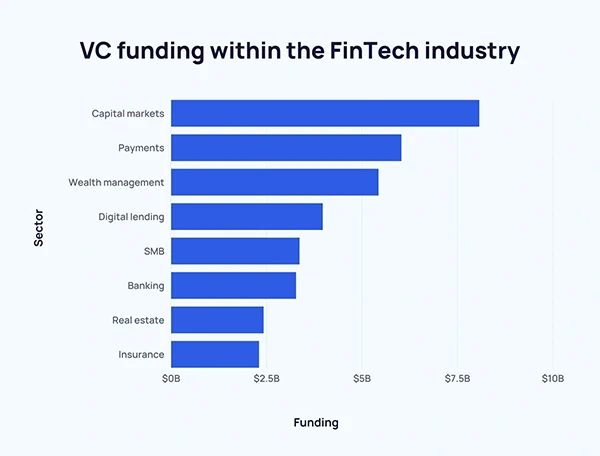Global Transactions Made Easy: Unveiling the Power of Fintech in International Banking
Technological progress and innovation have completely revolutionized the financial sector in the past decade. Fintech has transformed our day-to-day lives, with the composition of specialized software and algorithms used on smartphones and computers. Now we can seamlessly check our balances on mobile apps and conduct transactions without friction.
Its rapid success and continuous growth have altered the way individuals and businesses manage their finances, opening untapped possibilities. Not so long ago, we witnessed the rise of digital banks, offering a broad spectrum of user-friendly, economical, and efficient alternatives to the traditional banking system.
The fintech landscape continues to shape the financial ecosystem, it significantly impacts the international banking system providing stability, transparency, and protection to consumers. If you are looking for an alternative to do international transactions, consider checking out HSBC Bank as they facilitate global transactions with its hsbc swift code.
Also, learn about FinTech Regulation in this guide. Well, this article aims to provide detailed information on how fintech revolutionized global transaction methods, so without any further ado, let’s get started!
Understanding Fintech and Its Progress
Financial technology commonly known as Fintech refers to the integration of technology to automate and improve the delivery of financial services. The primary goal of this innovation is the enhancement of efficiency, affordability, and accessibility to the end users.
In advancement in areas such as artificial intelligence, blockchain technology, and data analytics, fintech aims to simplify processes, reduce costs, and overcome barriers for businesses and individuals as well.
Do you know?
Asia is ahead of other regions in many aspects of fintech.
Adoption of Financial Technology
The fintech industry has seen significant growth in the last few years. The market size of fintech globally is estimated at USD 312.92 billion in 2024. It is expected to reach USD 608.35 billion by 2029, growing at a CAGR of greater than 14% during the forecast period (2024-2029).
As per the reports by Research and Market, the primary growth will be in the banking, payment, and insurance sectors. In addition, due to the pandemic, the adoption of financial technology further accelerated. There was a paradigm shift in payment processes as companies moved to contactless online solutions to meet business needs.
Global Impact of Fintech
Due to the financial crisis that took place globally in 2008, the need for fintech development arose and slowly adapted as the traditional financial landscape changed dramatically. This led to the emergence of new opportunities for financial technological solutions.
During this time, many fintech startups were introduced parallelly with the expansion of technological giants into the finance industry. Moreover, the proliferation of fintech expanded further with the advancement of artificial intelligence, analytics, and blockchain technology, disrupting the financial market.
The following data represents the VC funding within the fintech industry.

Benefits of Fintech Solutions in Banking System
Financial technology transformed many aspects of businesses, especially the banking system. Here are the benefits of fintech solutions:
Increase Efficiency
Integration of fintech in the banking system significantly increases efficiency, with better speed and accuracy. With the help of digital analytics, the banking system has become much faster than before. Daily banking activities such as digital signatures, transfer of money via apps, instant online loan approval, and automation of bill submission completely revolutionized the banking system.
Minimization of Transaction Cost
Fintech solutions reduced the need for financial investments than the earlier process of money exchange. Online transactions become more accessible and straightforward. Now, the requirement of the amount of money spent on intermediary channels reduced significantly during the transfer of money from one party to another.
Better Flexibility and Adaptability
In the financial and banking sector, mergers and acquisitions often take place. Traditionally, the process is used to create issues because of different physical systems, creating problems for IT departments. But today, with the advent of cloud-based solutions, everything changed as there is a smoother consolidation of business entities.
Consolidation of Data
Financial technology shifted the banking system from a standard legacy system which does not communicate data correctly to a more user-friendly centralized system. This offers multiple advantages such as –
- More simplified banking technology
- Economical and less time-consuming
- Standardization of the data across all the financial institutions
- Accuracy of data
- Processing of data in less time
Improved Customer Satisfaction
To compete in today’s competitive tech-dominating world, banks need to keep an eye on customer satisfaction and increase the customer base. Financial technology enables banks to create personalized experiences with the use of new tools and technologies. By using this software, banks can understand customer needs better and deliver customized services.
Conclusion
Fintech solutions completely transformed the financial industry. In the past few years, the adoption of fintech has progressed rapidly, impacting transaction systems globally. It impacted multiple areas but mainly the banking sector.
It offers various benefits in the banking sector such as increased efficiency, minimization of cost, flexibility, data consolidation, and improved customer satisfaction. I tried to give comprehensive details about the impact of fintech on a global scale, hope this helps!
